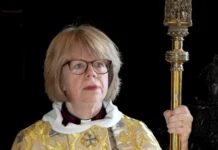The Synod of Bishops has discussed a draft set of pastoral guidelines to apply when Clergy want to participate in party political activities. They are a work in progress, and they are published below for public information.
DRAFT
The Pastoral Guidelines for Bishops to apply when Clergy assume Public Pastoral Office along Party Political Lines
Preamble
We recognise the vocation to ministry of the Whole People of God through Baptism. Sacred Scripture uses various images to give us an understanding of the inner nature of the Church.
The Church is a sheepfold whose single and necessary gate is Christ. (c/f John 10:1-10). It is the Holy Temple; it is the Home of God in which God’s Family dwells.
It is from our understanding of the Church as the Body of Christ, made up of the many and diverse members, who need the care of the Bishop and all the Clergy working together with the Laity to maintain the bonds of unity and affection, that we recognise the need for oversight and pastoral care.
We recognise and accept that the Church must be a Place of Sanctuary for all People in their diversity.
Civil Society is made of a complexity of political affiliations held by citizens. The Church needs to embrace them all in her care.
We recognise that formal public affiliation to any Political Party could lead to Conflict of Allegiance for a licensed cleric in the Anglican Church of Southern Africa. For example, in Mozambique political campaigning along Party Political lines, is prohibited from taking place in Churches. Clergy, in fact, are invited to Chair Election Process Meetings, precisely because of their neutrality.
We believe, therefore, based on our ecclesial and theological understanding of our vocation as Ministers of the Church of God, certain Guidelines ought to be put in place to regulate our common calling to this ministry.
Therefore, based upon the existing Canons in ACSA and in other ecclesial bodies governing the life of the Clergy in respect of taking on secular employment. Furthermore, in the party-political sphere, we recommend that the following guidelines be applied.
The Guidelines
- It is incumbent that a Cleric shall always without exception, in the first instance, arrange for an interview with the Bishop to discuss the possibility of “entering the arena of public office and to be in involved in party politics”.
- This conversation shall be deemed NECESSARY before any decision is made by the Cleric.
- Failure to have this discussion (and only informing the Bishop afterwards, or the Bishop discovering in the media or in other ways that the Cleric has entered politics) shall lead to revocation of the Cleric’s license.
- Provided that a full discussion has taken place and full disclosure made of the Cleric’s intentions in the arena of Public Office, the Bishop may in consultation with the Synod of Bishops, grant the Cleric to hold a Permission to Officiate (POT) with the following conditions.
- 4.1 The Cleric shall not be licensed to any formal office of ministry in the Diocese but may function on an occasional basis.
- 4.2 The Cleric may exercise such ministerial duties, only when invited to do so by competent ecclesiastical authority, on an occasional basis.
- 4.3 The Bishop shall inform the Diocese of the new status of the Cleric concerned i.e. that the Cleric holds a PTO and may be invited to exercise legitimate priestly ministry on an occasional basis.




Is this the long way of saying “if you join a political party you will lose your license.”?